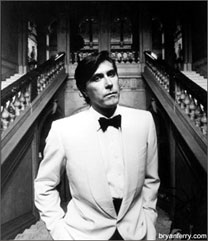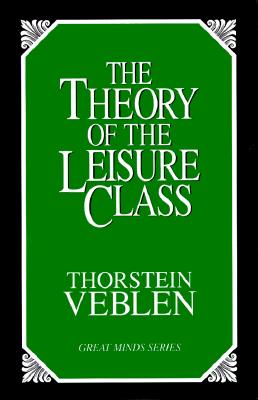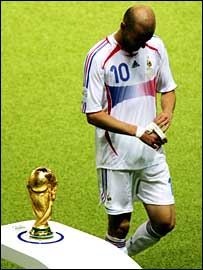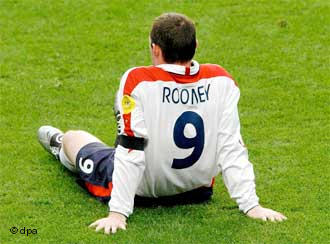July 28, 2006
Ripley vs Columbo
 |
Who would win: Ripley or Columbo?
The question is not an idle one, since there is a perfect structural symmetry between the two characters: Ripley, the leisure elite fake, who outwits all the cops who suspect him but who can prove nothing; and Columbo, the implacable hunter/ haunter of the wealthy and privileged, who uses the very arrogance of his prey to trap them.
An encounter between Ripley and Columbo would bring together two characters whose genealolgy can be traced back to Dostoyesvsky’s Crime and Punishment. Ripley was a kind of Raskolnikov in reverse, not using murder to prove his superiority but to attain a higher social status, while Columbo was famously based on Porfiry Petrovic, the detective who circled around Raskolnikov until the young student was undone by his own guilt.
It is hard to imagine Ripley breaking in the way that Raskolnikov does, since he does not have a guilty conscience that can be played upon. Similarly, it is hard to imagine Columbo – the implacable agent of Justice in shabby garb - giving up in the way that Ripley’s hapless police adversaries end up doing.
Columbo’s victories do not depend on knowledge – the preternatural thing about Columbo is that he knows immediately who the killer is – but upon proof. ‘Proof’ is the moment when knowledge of power’s obscene underside passes over into the Symbolic. Yet there is no-one who respects the power of the Symbolic more than Ripley, no-one who would be more careful to avoid condemning himself in the eyes of the big Other.
If Columbo could not manipulate Ripley’s conscience, he might be able to use his jouissance. Ripley does not enjoy killing but he does enjoy demonstrating his prowess for disguise and mimicry, and he enjoys the threat of his status and wealth being taking away. What other explanation is there for his willingness to centrally involve himself in schemes which are so risky? A clue to Ripley’s jouissance comes when when, towards the end of Ripley’s Game, defending Belle Ombre against mafia gunmen, Ripley (apparently inexplicably) laughs.
But perhaps Ripley would do what none of Columbo’s adversaries do and simply kill the detective.
Speaking of Ripley, here’s Daniel, with a brilliant reply to my previous Ripley post. ‘What better expression could there be of ceaseless externalized judgement of your very ability to be yourself, than our modern risk society, in which enjoyment itself has become a duty, and you can be anything you like, and indeed, will have have to be, so long as it pays.’ Indeed…
Daniel proposes that Talking Heads’ ‘Once in a Lifetime’ could also be the soundtrack to Ripley at Belle Ombre. (Another Roxy connection, of course, since Eno produced Remain in Light.) But, for me, ‘Once in a Lifetime’ would be better compared to Roxy’s ‘In Every Dream Home a Heartache’ because there is still a distance between the singer and the lifeStyle that is being sung about; ‘penthouse perfection’ still horrifies as much as it beguiles. Avalon is not about wealth and privilege; it is the very sound of wealth and privilege, the consummation of Ferry’s implicit ambition to remove all the trappings of Teen and Rebellion from Pop and transform it into background muzak for the leisured elite. This is more about a conspicuous demonstration of Taste than about the lyrics. Check the session musician sheen and the preposterous video for ‘Avalon’ the single: the windswept Ferry in a tuxedo with a falcon on his arm…
Daniel is right to argue that ‘The very special delirium of Ripley is that, effectively, he is being judged by the big Other on precisely how well he performs the part of Ripley.’ But, if the big Other does not exist, who is doing the judging? Ulimately, the answer has to be: Ripley himself. Part of the reason that Ripley kills Dickie Greenleaf in the first place, is that, if Tom plays the part of Dickie, he can function as his own ego-ideal. Dickie has failed to perform adequately as Tom’s ego-ideal; becoming Dickie both allows Tom to escape the turmoil and shame of (one aspect of) his own subjectivity and to ‘correct’ Dickie’s mediocrity and vulgarity by playing the role better than Dickie could himself. The Dickie performance prepares the way for the possibility of a Tom Ripley identity that Tom can perform without a sense of shaming inadequacy.
I don’t think it is quite true that Ripley can never achieve success. It is, rather, that success is not in itelf sufficient – Ripley is perfectly happy at Belle Ombre, but who be satisfied with happiness? That is why, in order to experience enjoyment, rather than pleasure, Ripley has to keep putting his Status at risk.
__________________________________________________________________
I think we can gain another insight the big Other from ‘Wyatting’. I remain deeply ambivalent about the phenomenon, but I’m more sympathetic to the motives of some of those involved after reading Carl Neville’s account of participating in it. Carl’s attack on ‘that horribly sentimentalized middle class viewpoint that its horrendous to sneer at "normal" people and disrupt their "normal" perfectly harmless Friday nights out etc,’ gets to the heart of what is wrong with Popism and its academic twin, Cult Studs. There’s an awful poignancy to Carl’s description of he and his fellow Wyatters’
- love/hate relationship with the class that we were always estranged from but for which none the less we continue to nurture a kind of angry hope..we are appallingly conflicted ourselves.. there is for us a particular heightened poignancy in, for example, putting on card-carrying-Commie Robert Wyatt's exquisite version of "Red Flag" in a pub full of pissed-up Proles and watching them pull faces and shout to have it turned off... a particularly bitter amusement, compounded of many emotions...
The question Carl poses at the end - ‘how do you Wyatt a bar full of Resonance FM listeners.... a bar full of super eclectic, super ironic Fashionistas (I'm guessing M-People's " Elegant Slumming", is pretty much the key.)’ – makes it clear that what constitutes Noise is structural position rather than any inherent features of the sound itself. Wyatting can be seen as one response to the impasse that Simon described in his piece on Noise in Blissed Out: without a big Other who can be annoyed and scandalized, Noise loses it cache.
The fact that the site for Wyatting is pubs is also revelatory, especially in a week in which Top of the Pops is finally limping to its inglorious end. Part of the thrill we got from performances by the likes of Japan and the Associates on Top of the Pops came from the fact that they we knew they were being broadcast into so-called ‘normal’ living rooms. The ‘normal’ context of the show itself - the hopelessly out-of-touch pre-Yoof Radio 1 presenters and the mediocrity of the surrounding bands - added to the intensity. But those bizarre incongruities were features of Old Media broadcasting, elminated by the proliferation of niche marketed narrowcast digital channels. The only site you will be able to reach anything like a general audience now is, indeed, pubs, so it is here that digitial hyper-choice can come into tension with ‘normality’. It is difficult, though, to see that tension generating anything but pointless rancour and/ or bemused incomprehension. British people will defend, sometimes literally to the death, their absolute right to reality-confirming convalescent oblivion. The game was up when breweries managed to successfully market pubs as anything other than places in which the defeated and the dejected - old men and (pre-Cool) Coronation Street characters - shuffled off into the sidings of life. The Rover's Return: Britain's popcultural answer to Waiting for Godot: a confirmation that 'no-one moves', that any attempt to escape ends up in the same drab familiarity. Pubs, like universities, are unredeemable; nothing can ever happen in them. That is what they are for: to suck everything into a black hole of vegetative inertia…
July 24, 2006
If Gary Lightbody was in a boy band, people would think he was a puppet. But as an indie rocker he is considered his own man
'... his schooldays and privileged background turn out to be just two of the subjects that Gary won't talk about...'
July 21, 2006
Ripley's glam

- He hated becoming Thomas Ripley again, hated being nobody, hated putting on his old set of habits again, and feeling that people looked down on him and were bored with him unless he put on an act for them like a clown, feeling incompetent and incapable of doing anything with himself except entertaining people for minutes at a time.
We can learn a great deal about the Glam impulse from these lines from The Talented Mr Ripley.
Significantly, Highsmith wrote the first Ripley novel in 1955 and only returned to the character in 1970. Tom Ripley was not a character that could fit into the rock and roll era, with its emphasis on teen desire, social disruption and Dionysiac excess. But Ripley’s‘hedonic conservatism’, his snobbery and his facility with masks and disguise, mean that he would be perfectly at home in the Marienbad-like country estate of Glam. If Sixties rock was characterized, on the one hand, by appeals made to the big Other (demands for social change and/ or more pleasure) and, on the other hand, by the denial of the existence of the Symbolic order as such (psychedelia), then Glam was defined, initially, by a hyperbolic/ parodic identification with the big Other – by the return of Signs and/ of Status.
In the sentence cited above, there are, evidently, two Toms - 'Thomas Ripley' the performed social role, and the Tom who performs that role; Tom the speaking subject and Tom the subject of the statement. At the outset of The Talented Mr Ripley both these Toms are ‘nobodies’ – as a speaking subject, like all speaking subjects, Tom is ontologically nothing; and as the subject of the statement is socially nothing. At this stage, Tom is very far from being the insouciant, poised figure he will appear to be later; he is capable of simulating confidence only when taking on the role of Other people. It is not that Tom lacks status; it is that he has no place whatsoever in the social hierarchy. His status is not even low. His indeterminate social origins and his ability as a mimic and as a forger (skills upon which his anti-career as a fraudster are based) mean that he fits in nowhere (or anywhere). Tom experiences this Nothingness in classic existentialist terms, feeling himself to be inchoate, a void, unresolved, unreal.
But the novel is a kind of existentialist picaresque by the end of which Tom has the (financial) means to create a Thomas Ripley he will not hate being. At the beginning of the next novel, Ripley Under Ground, it is immediately evident that Tom has created/ become such a figure. Tom has fashioned his best forgery – a Thomas Ripley who is independently wealthy, owns an elegant house in the Paris suburbs and is married to a beautiful, hedonistic heiress. From now on, Ripley’s anxieties will concern not the establishment of an Identity, but the preserving and defending of the status he has acquired.

Ripley’s trajectory is uncannily in sync with that of Bryan Ferry. Roxy Music and For Your Pleasure, those exercises in learning and unlearning of accent and manners, are Pop’s equivalent of The Talented Mr Ripley. The clothes , the bearing and the voice are faked, but not yet perfectly. The roots still show, and the painful drama of becoming something you are not still carries an existential charge. Stranded and the subsequent albums, meanwhile, are the equivalent of the later novels; here, success is assumed, and the threats to the tasteful but banal idyll come from ennui, a certain unease with contentment, and - most ominous of all - the danger of the past returning. The vapid bucolia of Roxy's Avalon - recorded when Ferry was himself married to an heiress and living on a country estate – would be the perfect soundtrack to Ripley puttering around in his Harpers and Queens dream home, Belle Ombre, with his wife, Heloise.
The first step to Ripley's becoming a Something turns out to be his vampirising of the identity of Dickie Greenleaf. I say ‘turns out’ because – contrary to what Anthony Minghella’s film implies – it is clear that Tom does not to go to Europe with the thought of destroying Dickie already in his mind. Ripley is a brilliant improviser, not a planner; the plans he does make are short-term, often leading to more problems than they solve, and he derives enjoyment from cleaning up messes rather than from avoiding them in the first place.
Initially, Tom’s attitude to Dickie is ambivalent is not straightforwardly predatory – he is aggressive and envious but also affectionate. If Tom is Nothing, a turmoil of unresolved purposes, a tumult of shame and inadequacy, then Dickie is really Something, an Object, resolved and real, possessing ‘the solidity of a stone’. By taking the place of Dickie, Ripley can escape the pain, anxiety and awkwardness of being himself, a self. To become an Object – to be relieved of the pressures of subjectivity, untroubled by any interiority – isn’t this one of central fantasies of Glam?

Zizek is certainly right to argue that the sexualization of the relationship between Tom and Dickie in Anthony Minghella's film is a mis-step. Yet Zizek’s interpretation is not fully adequate either. According to Zizek:
- Dickie is for Tom not the object of his desire, but the ideal desiring subject, the transferential subject "supposed to know how to desire." In short, Dickie becomes for Tom his ideal ego, the figure of his imaginary identification: when he repeatedly casts a coveting side-glance at Dickie, he does not thereby betray his erotic desire to engage in sexual commerce with him, to HAVE Dickie, but his desire to BE like Dickie.'
What is missing from Zizek's analysis is a recognition of the way that Dickie fails to serve as an adequate ideal ego.
The pivotal moment of the novel comes when Ripley is no longer capable of sustaining his fantasy identification with Dickie. When Tom looks into Dickie’s eyes and sees not the windows of a soul with which he can identify but the dead, glassy surface of an inert and idiotic dummy, he falls (back) into a deep existential nausea and vertigo, experiencing a moment of profound cosmic loathing and miserable dislocation:
- He stared at Dickie's eyes that were still frowning, the sun bleached eyebrows white and the eyes themselves shining and empty, nothing but little pieces of blue jelly with a black dot in them. You were supposed to see the soul through the eyes, to see the love through the eyes, the once place where you could look at another human being and see what really went on inside, and in Dickie's eyes Tom saw nothing more than he would have seen if he had looked at the hard, bloodless surface of a mirror. Tom felt a painful wrench in his breast, and he covered his face with his hands. It was as if Dickie had suddenly been snatched away from him. They were not friends. They didn't know each other. It struck Tom like a horrible truth, true for all time, true for the people he had known in the past and for those he would know in the future: each had stood and would stand before him, and he would know time and time again that he would never know them, and the worst was that there would always be the illusion, for a time, that he did know them, and that he and they were completely in harmony and alike. For an instant the wordless shock of the realization seemed more than he could bear. He felt in the grip of a fit, as if he would fall to the ground.' (78)
No doubt this is partly a registering of Dickie's rejection of Tom. But it also expresses Tom's feelings of revulsion for Dickie. What has been 'snatched away' from Tom is not just Dickie 'himself', but the fantasy of Dickie. It is as if Tom is no longer capable of pretending (to himself) that Dickie is anything other than a really rather mediocre person; as if he has encountered, for the first time, the brute, stupid physicality of Dickie - has seen Dickie, directly, without the screen/ sheen of fantasy to beatify him.
Tom’s break from Dickie is inevitable after the desperately painful scene, slightly earlier, when Dickie discovers Tom wearing his clothes and imitating him in front of the mirror. Dickie is disgusted and angered by Tom's imitation (what is more horrifying than being someone else's ideal ego?), just as Tom is utterly mortified by the fact that Dickie has discovered him in the act (what is more shameful than being caught by your ego ideal fantasising about them?). Significantly, Dickie makes the same error as Minghella, (mis)interpreting Tom's behaviour in terms of sexual obsession, choosing this moment to emphatically deny to Tom that he is 'queer'. But Tom’s wanting to be Dickie is far more obscene, far more deadly, far more Burroughsian, than his wanting to have him would have been.
Once Tom can no longer sustain his fantasy identification with Dickie, the logic of his psychosis insists that he will only be able to resolve his existential crisis – his lack of Being - by killing Dickie. That is partly because, in Ripley’s mind, Dickie is already dead: a soulless shell who illegitimately possesses wealth and social status that the more tasteful and refined Tom feels that he rightfully deserves. Tom is sure that he can be Dickie better than Dickie himself could be, and Dickie will be the daub that Tom will use as the basis for his masterpiece, the new Thomas Ripley. There is also a sense in which, by killing Dickie, Tom‘earns’ his place in the unproductive leisure class. Even before he is elevated into the leisure class, Tom shares its disdain for ‘drudgery’. The difference between Tom the common thief and con artist and Tom the member of the leisured elite is a successful act of violence. Veblen argues that ‘leisure class society’ is founded on the ‘barbarian’ distinction between exploit – ‘the conversion to his own ends of energies previously directed to some end by another agent’ - and industry (or drudgery) – ‘the effort that goes to create a new thing with a new, (“brute”) material’. The Masters must always vampirize, never produce. ‘The performance of productive work, or employment in personal service, falls under … odium. An invidious distinction … arises between exploit and acquisition by seizure on the one hand and industrial employment on the other. Labour acquires a character of irksomeness by virtue of the indignity imputed to it.’ Hunting has always been one of the activities upon which the leisured elite has prided itself, and Ripley is a consummate hunter (prey is one of the meanings of Ripley’s Game).

The use of homicidal violence to achieve and protect a position of privilege is very far from being aberrant, and Tom is no more likely to face justice than are the brigands of our real life ruling elites. (Highsmith’s refusal to impose a justice in the novels that is conspicuously lacking in the world is one of the most subversive aspects of her depictions of the character.) If Tom is pathological, his pathologies are the pathologies of a class; it is only the freshness of the blood of his victims (and his willingness to spill it himself) that separates Ripley’s exploits from those of his new peers. Yet Ripley is not a Slasher who enjoys killing. On the contrary, he is horrifying because he treats murder as a practical task devoid of any special existential or affective charge. Ripley’s commission of murders are remarkable for their their coldness and lack of cruelty; famously, Ripley only kills because he needs to, not because he enjoys it. Ripley kills out of cold, utilitarian logic, eliminating those who stand in his way or threaten to expose him. Again, far from being aberrant, a carefully maintained distinction between a violent, obscene underside and a bland, official front is the normal practice of power and prvilege. It is not moral scruples that motivate Ripley (he notoriously has none), but a fear of humilation. As Julie Walker argues:'What Tom does fear is unmasking; not merely the unmasking of himself as Dickie or even the unmasking of himself as a killer but the unmasking of his lack of a real self and therefore his self-perceived inadequacy in the face of others - there is no appreciable difference between fear of discovery for his tax scam or for his murders. His main fear is that of socially not quite making the grade.'
This rendition of amorality is what is (post)modern about Ripley. Classic psychosis consisted in the confusion of the Real and the Symbolic (the most obvious example of which would be hearing the voice of God). But Ripley’s psychosis resides in his conviction that only the big Other exists. Tom is not troubled by specific, named others being aware of, or suspecting, his criminality, so long as his crimes are not Symbolically inscribed. What is distinctive about Ripley’s postmodern take on the big Other is that it is radically atheistic – he neither believes in God nor in any moral order written into the fabric of the universe. The postmodern big Other is a Symbolic Order stripped of its symbolization of itself; it no longer poses as God or History and openly announces itself as a social construct - but this ostensible demystification does nothing to impede its functioning. On the contrary, the big Other has never functioned more effectively...
July 14, 2006
Let the memories begin

At the begining of the World Cup, Savonarola and I were aghast when ITV revealed that the promotional tagline for its coverage would be the phrase, 'Let the memories begin'. As Savonarola observed, here was a slogan which was at least as darkly resonant as 'welcome to the desert of the real'. The temporality suggested by the phrase 'let the memories begin' is, on the face of it, bizarre, but it is immediately familiar. A strange sense of anticipative commemoration accounts for all manner of postmodern cultural phenomenon, from the proliferation of unwanted 'making-of' features on unwatched DVDs, to that - increasingly widespread - tendency of spectators at live events to spoil any enjoyment they might have by concentrating all their attention on recording what is happening on their mobile phone cameras.
But the hankering for memories, the fixation on making things memorable, is precisely what prevents anything memorable happening. As I noted in my sleevenotes to the Caretaker box-set, 'anterograde amnesia' is an uncannily apt analogue for our (postmodern) condition, because it consists in 'the incapacity to form new memories'.
For football commentators, the arbiter of the worth of a team, player or tournament is always the 'history books' (by which they mean the big Other's memory). Part of Zidane's sin on Sunday was to have tarnished his Iconhood; to have reminded the big Other what we would much rather it had forgotten, namely Zidane's occasional violent outbursts (outbursts, needless to say, which are provoked by a constant needling and niggling from less skilled opponents). Zidane is a figure it is easy to fantasize about; we want him to be a Symbol, a representative of the racially diverse France side which Le Pen famously detested but which we loved. Zidane had a grace that went beyond his famed balletic style. His manner, his very physical features - which as he has grown older, seem more and more to have been chiseled out of stone - bespeak a gravitas that is very far from a heavy 'spirit of gravity'. On the field, he looked majestically self-sufficient, monastically focused; a figure of the utmost moral seriousness amidst celebrity fluff. He appeared so untouched, so untouchable --- which made the moments when he snapped all the more startling.
Some of the most interesting and convincing speculation on why Zidane snapped on Sunday is contained in Nick Southall's piece for Stylus -
- Rumour has it that Materazzi abused Zidane by calling him a “motherfucking Muslim” and a “terrorist.” “Fuck the World Cup,” thought Zidane perhaps in that instant of existential explosion, “I’ve already won it and right now this matters more.”
Because what Zidane did, is do that thing that a billion downtrodden and bullied people around the world dream of doing almost every day—sticking it to someone who’d been trying to make your life a misery for years, on your last day at work when it doesn't matter anymore, and sticking it to them good and hard. Who hasn’t fantasised about trashing their office, or bad-mouthing their domineering boss, or lashing out at a bully?
Zidane's act could be read as an act of sacrifice - did he sense that France would not win, and so offered himself up as a kind of scapegoat for the team's failure? Or was it his way of ensuring that he dominated the headlines, even if France did not win? (Certainly, what happened had the effect of tainting or at least overshadowing the Italian victory, if only temporarily.) Was there, too, some desire to annihilate Zidane the Icon? His sending off provided the Spectacle with an Image - the shamed hero striding past the World Cup trophy - that, even as he trudged off, Zidane must have recognized would have a (counter) Iconic power.
Nick was right: the World Cup was a tournament dominated by fear. Fear is the complement of the fixation on memory, the thought, how will be remembered?, functioning not as a spur to a greatness but as a cue to be ultra-cautious. Nick is also right to connect this fear with wider trends in capitalism. Far from being the creative carnival of unrestrained libidinal innovation that some of its defenders want it to be, current capitalism is locked into the production of commodities that are barely different from one another. 00s capitalism is very different from the capitalism that Deleuze, Guattari and Lyotard described in the early 70s. The issue that troubled, exercised - and to some degree excited - them was capitalism's capacity to consume and metabolize any apparently 'subversive region', convert any Outside into a commodified interiority. Capitalism's problem now is a consequence of that very success; if it has colonized everything, then there is no longer any Outside for it to vampirize, and it is reduced to cloning the already-existing successful models, producing diminishing returns. In this way, the spreading of Business Ontology into all areas of the culture and into every level of the psyche - the demand that every single activity must justify itself in terms of economic utility - is disastrous for capitalism itself; it fails to recognize that the most ostensibly useless and non-productive activity may be what generates the 'entrepreneurial leaps' without which it is caught in stagnant reiteration.

There are connections between fear, hedonic conservatism and Jennifer Senior's article on happiness in New York magazine, linked to by Simon. The article is indeed fascinating, even though it contains nothing that would surprise Spinoza, Freud or Lacan. The problem is not only that human beings do want to be happy; it is that unhappiness brings us enjoyment. The bleak, Schopenhauerian take on this - and one that Freud and Lacan sometimes echo - maintains that the best we can hope for is to attain a compassionate detachment from our own inevitable follies.
To construe things in this way, however, is to remain within the purview of the pleasure and the reality principles, where the inevitably failed pursuit of an impossible hedonic satisfaction can only result in dejection. (The most famous formulation of this is Freud's distinction between 'hysterical misery and common unhappiness'.) The syndrome I described as 'depressive hedonia' is a short-circuiting of this process, so that instead of oscillating between pleasure and dejection, the two states become increasingly indistinguishable. When 'pleasure is the boss', teenagers find themselves subject not only to work pressure but also to a perhaps even more punitive hedonic pressure. That is why the phrase 'hedonic treadmill' is indeed 'so vivid, so apt'. ('Isn’t that what New York, the city of 24-hour gyms, is?' Senior asks. And if the pleasuredome of NY is actually a miserable hell, what, then, of London?)
Positive Psychology - which sounds like some nightmare combination of good old-fashioned American ego psychology with vulgar Deleuzianism - apparently maintains that we should '[n]o longer should we think of ourselves as tin cans of sexual chaos, as echoing caverns of repressed wishes and violent desires; rather, we should think of ourselves as the shining sum of our strengths and virtues, forceful, masters of our fates. All that nattering we’ve been doing in therapists’ armchairs, trying to know and exorcise our darker selves—it’s been misguided.'
The problem, of course, is that people are 'echoing caverns of repressed wishes and violent desires'; or, at least, this is the default settting. The diagonal cutting across Freudian pessimism and Positive Psychology's optimism is Spinozism - the goal is to cease to be an 'echoing cavern of repressed wishes', but this cannot be achieved by acts of will alone, nor by shoring up the Ego, but by a long, slow, dismantling of the accreted wounds and habits that we are. There is no strong Master waiting at the end of this road.
Seligman, one of the gurus of Positive Psychology, recognizes that pleasure cannot be all, but the way in which he describes what is beyond pleasure is telling. He 'makes the critical distinction between pleasures, which make us feel good, and gratifications, which, oddly, may not involve positive emotions at all, but rather the blunting of them. Eating a Mars Bar is a pleasure; doing something that engages or enhances our strengths is a gratification, whether it’s swimming, welding, or listening to a friend in need. Optimally, when we’re in a state of high gratification, we’re experiencing what Seligman’s colleague, Mihaly Csikszentmihalyi ... calls flow—a state of total absorption, when time seems to stop and the self deserts us completely.' The question is: why call this second state 'gratification'? Wouldn't a term like 'involvement' be better? (Much of the appeal of videogames is that they provide a kind of off-the-peg mode of involvement, in which the ostensible teleological goal is quite clearly only a lure; the real appeal, evidently, is not the winning of the game, but the immersion in the gamespace.)
__________________________________________________________________
See also:
Adam Phillips' claim that “Happiness is fine as a side effect” echoes Burroughs' claim in The Place of Dead Roads that 'happiness is a by-product of function. Those who seek happiness for itself seek a victory without war.'
I can't resist bringing up this little nugget :
“Yet every bit of data says children are an extreme source of negative affect, a mild source of negative affect, or none at all. It’s hard to find a study where there’s one net positive.”
And this:
'Gilbert theorized that our beliefs that money and children will make us happy are super-replicators—without them, civilization wouldn’t survive.'
In other words, Schopenhauer was right: the desire to have children is not based on reason or the desire for happiness but a 'cunning of the species'....
July 13, 2006
July 12, 2006
We're doomed...
Speaking of the World Cup and hyperstition .... according to the Mail yesterday: 'Spain hired an American professor of psychology, Leonard Zaichowsky, who said of the Spanish media: 'Alll they say is, "We're doomed," and "we're cursed!"' Evidently, however, the professor didn't help the Spanish team escape the curse.

In answer to my question, 'is Gattuso the only World Cup winner to have played in the Scottish league?', reader Bruce Bowie came up with the following:
- By my reckoning there are three other WC winners who've played in Scotland:
Juninho Paulista - Brazil 2002 (Celtic 2004)
Stephane Guivarc'h - France 1998 (Rangers 1998-1999)
Lionel Charbonnier - France 1998 (Rangers 1998-2001)
And the least said about the WC winnner who managed the Scottish national team the better...
A learned colleague tells me Peter Bonnetti was in the England WC squad in '66 and played for Dundee United in the late '70s. Question is: did he get a medal?
What is unique about Gatusso, however, is that, unlike all of the players listed above, he played in Scotland BEFORE winning the World Cup...
Check out some memories I don't recognise...

My write-up on the newly re-mastered Foxx/ Ultravox albums is now up on the Fact website...
July 10, 2006
Reflektions
1. Giving voice to Autobiography

Some thoughts on Simon's response to my Scritti post...
It's not that I doubt that much of the material for the new album's lyrics comes out of and refers to 'specific misdeeds and actual epiphanies in Green's dare one say it real life'. My point was a fairly simple deconstructive one, though, that, these experiences - which, like all experiences, can never be entirely separated from fiction - are not simply 'expressed' but written, pushed not only through a linguistic but also through a musical grid. The autobiographical effect is always produced by particular techniques (for instance, if we suspect that 'Mrs Hughes' refers to one of Green's schoolteachers, even before we 'know' - thanks to other textual evidence - that it does, that's due to a certain stylistic and structural clues/ cues).
I agree with Simon that 'it's more self-subversive of Green to go in for this veiled autobiography than if he'd really just picked up where Cupid left off and recapitulated the old concerns', with the proviso that it's not only selfsubversive. In many ways, White Bread does what Cupid did: it unsettles and undoes the dominant global Pop brand of the time. The subversive work is much more urgent now that it was in 85, when the target/ inspiration/ object to be undone was Michael Jackson (who, already conspicuously falling apart, already dis-integrating the organic body of Soul into a Duchamp-collage of machinic gasps, whoops, and yelps) was scarcely in need of much deconstruction. But there has never been a more urgent time to question authenticity and presence now that the voice of global Pop - James Blunt, K T Tunstall, Chris Martin - is White in a Wholesome, Whole Earth, Whole Grain way (nothing but organic carrots for baby Jake). Instead of giving us the option of alienating ourselves through Jackson's tics and hooks, present day Pop offers us these plain-speaking White faces as pallid mirrors - the myth of no myths, Oedipus unmasked, supposedly, domesticity for all... Once we believed (and once we were critical), now we just know (who we are)... In offering a fragmentary version of current Pop's 'confessional mode', perhaps the elliptical, elusive/ allusive White Bread, Black Beer deserves the description ' Modernist MOR' even more than the Junior Boys' new LP does. (Speaking of the Junior Boys, some people have asked when the album is due to be released: in the UK, the 12" single, 'In the Morning', is out 14th august, followed by the LP on 11th september.)
Simon is right to note 'the sheer size of the voice in the mix, unnervingly upfront, asphyxiatingly intimate, criminally cloying....'
- White Bread: you could say that Green removes the wholesome Grain of the Voice as theorised by Barthes, the element that bypasses or undercuts through all the expressive artfulness of singing and instead comes directly from "the body of the cantor", from pre-culture/pre-langue
and yet even at its most ethereal, the voice is where the Real of breath/ exertion/physical longing-loathing-fear/embodied-will meets the textual machinery of the lover's discourse/utopian politics/religion/etc
it's the uncanny hinge between presence and absence
Compare Dolar:
- Every emission of the voice is by its very nature ventriloquism... It is not the haunting voice impossible to pin down to a source; rather, it appears in the void from which it is supposed to stem but which it does not fit, an effect without a poper cause. In a curious bodily topology, it is like a bodily missile which separates itself from the body and spreads around, but on the other hand it points to a bodily interest which cannot be disclosed - as if the voice were the very principle of division into interior and exterior. The voice, by being so ephemeral, transient, incorporeal, ethereal, presents for that very reason the body at its quintessential, the hidden bodily treasure beyond the visible envelope, the interior "real" body, unique and intimate, and at the same time it seems to present more than the mere body - in many languages there is an etymological link between spirit and breath (breath being the "voiceless voice", the zero point of vocal emission); the voice carried by breath points to the soul irreducible to the body. ... The voice is the flesh of the soul, its ineradicable materiality, by which the soul can never be rid of the body: it depends on this inner object which is but the ineffaceable trace of externality and heterogeneity, but by virtue of which the body can also never quite simply be the body, it is a truncated body, a body cloven by the impossible rift between an interior and an exterior. The voice embodies the very impossibility of this division, and acts as its operator. (A Voice and Nothing More (70-71)
See also Dolar's footnote to this section:
- This is ... why formulas like those posed by Barthes - le grain de la voix, the grain of the voice, "the materiality of the body speaking its mother tongue," "the body in the singing voice," and so on ... - will never do. The problem is that the voice cannot be pinned to a body, or be pinned to a body, without a paradox.
Dolar's point is that there is no 'mother tongue'; the tongue and the throat are the sites of an invading alien structure (an alien structure wihout which, nevertheless, you could not be who you are...).
In mainstream Pop, the foregrounding of the Voice connotes depth, authenticity ... But partly what makes White Bread so uncanny is that Green's Voice is as obviously synthetic as the sequencers with which Cupid & Psyche was constructed. Like Ferry and Sylvian, Green has always sung in a borrowed accent. In fact, Green, like Sylvian, has used more than one assumed accent - first it was Robert Wyatt mockney, then it was Michael Jackson's super-sugared Americandrodyny. (There are ways in which White Bread bears comparison with Sylvian's Blemish, an LP which was similarly elliptically fixated on shame and trauma: in both cases, the stripping away of instruments highlights the de-natured, confected quality of the voices.)
Also check out Owen's essential contributions to the discussion...
2. Bass magnet
DMZ on Saturday was the perfect cure for the ghastly murk of The End a week or so ago. The afficianados are right; this is not a sound that can be replicated at home or on headphones.* It's definitely not IPop. What you cannot simulate are the bass waves as they pass through the air and through the Massive. Bass as environment, its electrolibidinal power a mighty nonorganic force of which the DJs and producers are themselves in awe (and dread). The electrified enthusiasm of the crowd and the DJs a fascinating contrast with the implacable lumbering pulse of the sound, although a certain rave/jungloid E-exuberance is creeping back, most notably in the high end flitting sounds in Skream's productions. As Kode9 observes in the fascinating Invisible Jukebox in this month's Wire, if you were subject to intense exposure to jungle in the 90s, there is no need for the double-time beats to be actually present any more; you provide them yourself. Digital Mystikz and Loefah do so many rewinds their set is almost picnolepticaly chopped-up. Skream and Hatcha are more punitively seamless. Skream is wired, so tall and thin, so addicted to the bass it's almost possible to imagine that he's been emaciated by it, neglecting organic sustenance in order to maintain the bass habit. Even though I'm beyond exhausted, so tired that everything is punctuated by narcoleptic cut-outs, it's hard to leave. There's something soothing and lulling about the sound; it's possibly the most oceanic sonic environment I've ever been immersed in. Electro-compulsive therapy. Eventually I do manage to escape what Kode9 calls the 'bass magnet', blinking out into the dawn light.
(*Burial, by contrast, quite evidently does work on headphones. IP's comparison of Burial with ambient dub is certainly more valid than the wholly unconvincing parallels with Aphex made in some quarters. But the obvious precursor for Burial is what Simon used to call 'ambient jungle', even though, needless to say, Burial's isn't a recapitulation so much as a hauntological re-visiting. And the thing is, Burial does it much better than Goldie and the like managed in the 90s. Timeless succumbed to the 'jazz rock noodle' Good Taste attractor with obscene haste; Burial is well aware of those dangers. One of my favourite sections from the interview with Blackdown: 'There’s no ‘musicianship’ in my sound, that’s the enemy of my tunes. Fuck Rhodes chords, fuck that noodle stuff. There’s been a lot of times when producers I’ve liked have gone all ‘musician’ on me and just produced shit, not underground.')
3. Curse go back
The World Cup ends, with an act of self-destruction (whatever Materazzi said, it's hard to believe Zidane hadn't heard it before) and a team liberating itself from its past. Most of the reactions to my previous World Cup post concentrated on England, but the more interesting, more uncanny point concerned the way in which the tournament as a whole has a compulsion to repeat, so that it needs to be treats as a psychoanalytic subject. Italy - a former winner, a European team winning in Europe - confirmed so many patterns, but their emphatic success in the penalty shoot-out was a break with established form. Here was the thrilling spectacle of a team escaping a curse, refusing to be the agents for the past to repeat itself once again: a nice definition of freedom. Hard to believe that the French sending on Trezeguet - who famously scored the winning golden goal to beat Italy in the Euro 2000 final - wasn't a hyperstitional gambit, designed to erode Italian self-belief by reminding them of past failures. As it turned out, Trezeguet's miss acted as a kind of negative talisman, a Sign that events were with the Italians. The Italian victory was a triumph for a team ethic and for self-styled 'proletarians' like Gatusso (is he the only World Cup winner to have played in the Scottish League I wonder?) over the elite individualists. Evidently, it is possible to succeed with one occasionally brilliant, often anonymous midfielder (Totti) in your team, but not with three, as England tried to (Beckham, Lampard, Gerrard). One key to the Italian success was full backs who attacked; the tournament was conspicuous for its lack of width, with many teams adopting a 'South American' style - as boring in its own way as Anglo kick and rush - of pointless possession culminating in an over-ambitious attempt to thread the ball right through the centre of defence, or an an over-ambitious shot sailing over the bar.
4. Grey Nature

As a taster for my interview with John Foxx, which covers some of the same ground, here's the man, in brilliant form, speaking to the excellent Ballardian. Choice cuts:
- An intimate knowledge of urban ambiences is a joy as deep as anything in Green Nature. I have a fascination with Grey Nature, or Technicolor Nature – ecologies are emerging which are as subtle as anything Green.
- Songs are an interesting compound of music and words as chant — a hypnotic process, where the operator attempts to slip a piece of dream cinema under the door while the recipient is distracted. An attempt to persuade the listener to suspend disbelief long enough to watch the movie. But it’s an internal movie. One composed of the listener’s own experience. All you do is allow a space big enough for the listener to walk inside and construct their own movie, while believing that it is all someone else’s work.
(btw, on the grounds that it covers Harold Budd, Germany as a mediator for English Pop, the relationship between visual and sonic culture and Ballard - after Chris Bohn called last month for more Ballardian music - I offered my interview with Foxx to the Wire. Didn't even get a rejection lol...)
July 05, 2006
Scritti's sweet sickness

- His new album is called ‘White Bread, Black Beer’…
‘Why? It’s pretty much all I live on – Guinness and a lovely, soft, gooey, terribly-bad-for-you white bread from the local Turkish bakery. It’s also a reference to when I worked with all these R&B musicians in New York in the ’80s – if you played something they didn’t like they’d frown and say, “Oh man, that’s so white-bread”. Meaning that it came from that “white” pop culture which is seen as largely voided of nutrition, substance, goodness, or indeed “soul”. And that definitely got my antennae going, because I’m mistrustful of “soul” and I very much like white, processed pop music. Which, in a way, is what this album celebrates.’
- - Green, interviewed in Time Out (via bibbly-o-tek)
- Instead of any fulfilment or resolution, Scritti's music delivers the bliss of the lover's discourse in all its ellipses, contradiction and repetition, its endless pursuit of an unattainable object. The disembodied, depthless, non-linear effects, and the borrowing of pop's language of love try to undo desire's usual articulation in coherent drives and stable identity while reinscribing or repeating the very 'soul' language that's used to complete the self in today's pop: the sweet nothings heard beside, within the sexual healing.
- -Paul Oldfield, 'After Subversion: Pop Culture and Power' (1989)
A fascinating conjunction: listening to Scritti Politti's quietly stunning new album - or rather being seduced and ravished by it - while reading Mladen Dolar's A Voice and Nothing More. If, as Simon claims, White Bread, Black Beer is an album without a 'sonic concept', must we conclude that the songs are Green's version of a soul-baring? After all the deferrals, the veilings, the deviations, finally a revelation: this is Me? The album's title seems to invite such an interpretation, suggesting a negative alchemy, the reversion of Sublime agalma into basic foodstuffs. Without a sonic concept, we are left only with the honey-pure Voice, one of the most distinctive in Pop - and the Voice, so we have always been told, is the bearer of pure Presence, guarantor of authenticity and veracity...
This, precisely, is what Dolar challenges. Dolar's claim is not that Derrida was wrong that the voice has been privileged in a certain version of metaphysics, but that this has never been the whole story. 'There exists a different metaphysical history of voice, where the voice, far from being the safeguard of presence, was considered to be dangerous, threatening and possibly ruinous.' Tellingly, Dolar's alternative history of metaphysics goes via the treatment of music. (Incidentally, it is hard not to read Plato's admonition, quoted by Dolar, that '[a] change to a new type of music is something to beware of as a hazard of all our fortunes...[f]or the modes of music are never disturbed without unsettling of the most fundamental political and social conventions' as a critique of both PoMo Popism and nostalgic rockism). Dolar's argument is that Law-Logos has always sought to differentiate itself from a voice conceived of as feminine and chaotic, but Logos cannot extirpate the voice, and indeed depends upon it: what is the fundamental expression of the Law if not the voice of the Father?
How could your nothings be so sweet?
What to make of Green's voice, then? Or, to pose the same question from the other side: what is the minimal difference that has always separated Scritti's deconstructions from the Real Thing? There's a tendency to locate Green's undoings and unsettlings on the level of signifiers, as if his subversion were all to do with Wordplay, and his voice were merely a site for natural expressivity. But, as Dolar establishes, the 'object voice' is neither the voice stripped of all sensual qualities in order to become the neutral transmitter of signifiers, nor the voice stripped of all signification in order to become a pure source of aesthetic pleasure. With Green's voice, we continually slide between two types of Non-Sense: the nonsense of 'the lover's discourse', the nursery-rhyme-like reiterations of baby-talk phrases that are devoid of meaning, but which are nevertheless the most important utterances people perform or hear; and also the nonsense of the voice as sound, another kind of sweet nothing. That is why Green's lyrics look very different when you read them; the voice almost prevents you hearing them except as senseless sonorous blocks, mechanically repeated refrains.
What is disturbing about Cupid & Psyche by comparison with the New Pop that preceded is precisely its lack of any self-conscious meta-presence. This is where I slightly disagree with Simon, when he argues that Cupid & Psyche is 'about love rather than in love.' It seems to me that what makes Cupid & Psyche so disturbingly depthless is precisely the absence of that space between the song's form and the subject; the songs instantiate the lover's discourse, they do not comment on it. Cupid & Psyche's songs, creepily, aren't about anything, any more than love itself is. Compare Cupid & Psyche with ABC's The Lexicon of Love (an album of love songs about love songs, if ever there was one), for instance. Martin Fry's presence is ubiquitous in The Lexicon of Love, manifesting itself in every raised eyebrow and set of inverted commas. But on Cupid & Psyche we get precious little sense of a 'real', biographical Green behind or beyond the record; as opposed to Self-consciousness, we have 'reflexivity without a self (not a bad name for the subject').' (Dolar) There is only the void, the voice and the signifying chain, unraveling forever in a shopping mall of mirrors, a whispering gallery of sweet nothings... But what is disturbing about Cupid & Psyche is the suggestion that this really is love, this impersonal, idiot rhyming is all love is. That is why Cupid & Psyche is far more unsettling than the supposed 'reversion to a pre-linguistic condition' of the 'Kristevan' psychedelic rock celebrated by Simon in the late 80s (and mentioned in the Paul Oldfield essay I cited above as a point of comparison with Scritti); the supposed 'oceanic dissolution of self' assumes, not only that such a dissolution can be attained, but that there is a 'real self' that can be dissolved. Like the first two Roxy albums, Cupid & Psyche's message is far more radical: the supposed 'real', 'authentic' self, with its emotional core, is a structural illusion; our most treasured 'inner' feelings are trite repetitions; there is no intimate, only an extimate.
I guess it's a sickness/ that keeps me wanting...
The excess of Green's voice resides in its sweetness, a sweetness that seems unhealthy, sickly, which puts us on our guard even as it seduces us. Green's voice is synthetic, candied, rather than authentic, wholesome. It already sounds inhuman, so that, upon first hearing rave's pitched-up chirruping vocals, the obvious comparison was with Scritti's androgynous cooing. All of this is anticipated on the track that I find most captivating when I listen to Cupid & Psyche now, the machine ballad, 'A Little Knowledge', in which Green duets with what sounds like a woman, but which is in fact a Fairlight-sprite, a synthetic succubus constructed from his own voice pitched up. (This exchange with a synthetic Spectre happens before the 'real woman', session singer B J Nelson, officially comes in...)
It's worth remembering at this point that Green is very much the White ghost at the revel of contemporary Black pop. At least since More Brilliant Than Sun, disco, techno and house's (non)roots in white synthetics have been exposed - Moroder inducting Donna Summer into a labyrinth of synthesizers, Chic wanting to be Roxy Music, Cybotron stealing Ultravox's accents and sound - but Cupid & Psyche's function as a template for contemporary R and B is far less rehearsed. Specifically via its influence on Jam and Lewis's production of Janet Jackson's epochal Control, but more generally through its intuition - or entrepreneurial leap - that the flesh and blood of (what was then called) Soul could be sutured with hip hop's artificiality and abstraction machine, Cupid & Psyche instituted a 'new paradigm' for globalized Pop. Skank Bloc Bologna has become the Global retail arcade of capital. Cupid & Psyche is chillingly impersonal, but in a way that is much different to the staged impersonality of Kraftwerk, Numan and Visage which fascinated black American hip hoppers, techno and house pioneers in the early 80s. Scritti's erasure of Soul goes by way of a neurotically note-perfect, ultra-fastidious simulation of a hyper-Americanised 'language of love'. It is no longer a matter of technical machines versus real emotional beings, but of 'authentic emotion' as itself the refraining of signifying and sonorous machines. (It is therefore no surprise that another destroyer of Soul, Miles Davis, should have covered Scritti songs and collaborated with Green).
All of which goes some way to explaining the title of the new album, which initially seems grossly inappropriate, since the songs' souffle lightness could not be further from carnal carbohydrate stodge or beery bloating. But what if these substances are not 'basic' and 'life-giving' but the non-vital excess without which life would be nothing? What if 'white bread' indicates not the normal and the nutritious but the synthetic, and 'black' beer indicates not the homey and the heavy but the addictive?

There is a performative flatness about the opening track and first single, 'The Boom Boom Bap'; it a Song about longing and addiction, which is itself arrestingly, gorgeously addictive. I can honestly say that I was hooked from the moment I heard Green sing the opening phrase, the song's title. 'The Boom Boom Bap' is so sublimely, achingly poised that the temptation is to keep hitting rewind, to remain lost in the song's plateau, in which pop's habitual urgencies are anti-climatically suspended.
play it over and over again/ play it over and over again
'The Boom Boom Bap', as Green told Simon, is ostensibly about the thin line 'between being in love with something and being unhealthily addicted to it'. The three addictions with which the song deals are drinking, hip hop - 'the title itself is named after hip hop’s bass-boom and syncopated breakbeats' - and love. Addiction is the pathological motor of life. 'The beat of my life' is not any natural, biological rhythm but the non-organic pulse of the (death) drive. 'If hooks could kill', Green muses, knowing that of course they can; that being hooked can be lethal, but that not being hooked on anything is even more deadly and deadening.
When you do eventually pull yourself out of the honeyed embrace of 'The Boom Boom Bap', you find yourself yielding to an album of folds and fragments, slivers and sketches, in which everything comes to an end before you expect it to (amplifying your longing to hear it,again and again). Thankfully, Green's obsession with hip hop emerges not through the brute Presence of rap (what could be more Present, now, than rap?), but via a certain absence in the production which prevents the tracks ever closing into organic wholeness.
I was discussing with Owen the other week how mid-80s technology drew almost all Pop into an arid, dated, hyper-glossed blandness: the two most conspicuous exceptions to this trend were Cupid & Psyche (which succeeds precisely because of its total identification with the Time and the Technics) and Kate Bush's Hounds of Love. White Bread, Black Beer is like Green's late-arriving Hounds of Love, an album in which Pop's history (and his own) can be re-visited without being reiterated, in which Styles can be traversed without their ever being a question of inconsistent eclecticism. The very refusal to strain for contemporaneity makes the album far more Now than it would have been if it engaged in an unseemly pursuit of Street cool.
The references to London, to 'British Homes Stores', to the names of Green's schoolteachers, restore some of the locality that was remorselessly stripped away by the proto-Starbucks 'third place' mid-Atlantic sheen of Cupid & Psyche. This, evidently, also means a restoration of some biographical specificity; the songs are no longer lover's labyrinths that anyone can enter, but memory lanes some of whose landmarks only Green can recognize. Amidst all of the trails of influence you can trace across the album, those Appolinians, Brian Wilson and Paul McCartney, recur most insistently. Would the album then be a redemption through melody? A recovery - from sickness? A recovery - of the Self?
And when I'm with you baby/ I know just who I am/ and no-one understands the way that you do/ darling
Hearing Green sing lines like these is a curiously haunting and unsettling experience, since Green's voice carries with it all those Cupid & Psyche traces which ironize and undercut any gestures towards 'reallly meaning it' or 'really being' anything. In any case, listen closer to the song in which those lines occur ('Locked'), and all is not as it seems. 'People want a piece of me,' Green sings, 'but who they get is not what she seems.' In any case, autobiography, would still be a form of writing (and the most deceptive kind), and the 'you' that is the usual addressee of the love song is never the ostensible partner, the 'real flesh and blood person', but the big Other. Hence David Kelsey in Highsmith's This Sweet Sickness - a Scritti title if ever there was one - a man who conducts his pathological love affair primarily through letters written to his fantasized Other (and which are ignored and misunderstood by their supposed flesh and blood object), is the lover in its purest state.... All the parallels of love with addiction on White Bread, Black Beer suggest that Green the writer still knows that love is essentially both pathology and cure, so Scritti's sweetness remains sick, their sickness sweet....
July 02, 2006
To lose once might be an accident, but to lose five times demands a psychoanalytic explanation

What better example than the World Cup is there of the fact that individual people are irrelevant while impersonal structures are invariant?
The World Cup is like the Overlook Hotel: the identities of individual meat puppets might change, but the structure continues endlessly. England's defeat in a penalty shoot-out - for the fifth time in a major tournament - is one example of a trend that keeps repeating itself. Another, bigger, pattern - South American teams do not usually win in Europe - was confirmed last night when Brazil went out to France. (There has only been one exception to this rule: when Brazil won in Sweden in 1958). Conversely, European teams have never succeeded in South America. There have only been three new winners of the World Cup since 1958 (England, Argentina and France), and they were all the host nations the first time that they won.
The uncanny implacability of these trends over fifty years defies empiricist commonsense. There is little if any continuity of empirical factors during that period; individual players have come and gone, cultural conditions have altered, most of the South American players play for European teams ....
How then are to account for the persistence of these patterns? First of all, we must note that the role of belief and desire in sporting success is clearly far more crucial than we ordinarily assume. For instance, the reason that new World Cup winners are host nations is almost certainly that playing at home allows teams to cross a kind of belief threshold where success becomes thinkable.
Last week, Leonardo observed that England's problem was precisely that its team does not believe that it can succeed. Brazil, Leonardo said, take to the field assuming that they are the best. 'That's because you are,' Gary Lineker interjected, completely missing the point, which was that belief is a precondition for success, an existential act of faith, not an empirical representation of a fact. In the case of the successful nations, the assumption of superiority functions as a kind of hex on less confident teams. In the second round match between Brazil and Ghana, for example, in which the Brazil team performed like bored, highly paid actors only willing to read the few pre-scripted lines essential to the plot before returning to their trailer, it was clear that the Ghana side was fatally hamstrung by its inability to believe that it could win. Powerful and skillful in midfield, the Ghana team disintegrated whenever they had a serious opportunity on goal, hopelessly miscuing their shots. It was as if the Brazil goal was protected by a psychic forcefield - which of course it was. The fact that the Ghana players could not believe that they could score meant that they were unable to.
England's repeated failure in penalty shoot-outs is not down to bad fortune, as the English media, with its empiricist presuppositions, insists. To lose once might be an accident, but to lose five times demands a psychoanalytic explanation. Some clues as to the nature of the libidinal disorder which afflicts the England side were provided when Rooney was sent off yesterday. From being disjointed and tentative, England suddenly looked purposive and effective. That was because Rooney's dismissal gave England the opportunity to achieve what it is most comfortable and familiar with, a heroic defeat. England players are so accustomed to failure that they would find success traumatic and unimaginable, so it is as if, time after time, the team contrives to lose one of its key players - Rooney yesterday, Beckham in 1998 - in order to set up the conditions for the desired 'heroic defeat'.
The fact that England once again lost at penalties has been treated by the media here as yet another slight by cruel Fate. ('Who'd have thought that Lampard and Gerrard would have missed?' screeched Jonathan Pearce in the Mirror this morning: well, Jonathan, only someone who had watched the tournament, I suppose.) But the comparison with the Germans, who despatched all their penalties against Argentina on Friday with clinical ruthlessness, immediately gives the lie to the idea that 'penalties are a lottery'. The German team succeeds in penalty shoot-outs for the same reason that it succeeds in World Cups in general play: its capacity to avoid 'subjectivating' stressful situations. What makes penalty shoot-outs tortuous is, as is obvious, the subjective situation; the answer, then, is to do what England players seem to find impossible, and to retain focus on the objective reality that scoring a penalty kick is not difficult for a professional footballer, and that you should expect to score, not to miss. It is precisely the Germans' capacity for this kind of detachment has infuriated and frustrated English supporters over the years. As Owen observed the other day, 'with Germany there is no mythology'. Defeat has never been interiorized, ontologized and narrativized. Not so with England: when it comes to penalties, the fact that England have lost in so many previous contests is part of a self-sulfilling circuit, the sheer fact of repetition itself functioning as a means by which the past can repeat itself.
What makes Italy so compelling and sympathetic a side to watch is that their self-belief is so precarious. Unlike their English counterparts, the Italian team do not find success unthinkable. But they are continually haunted by the spectre of failure, which makes watching them a real existential drama. When we watched the second round game between Italy and Australia, Savanorola observed that, after the dismissal of Materazzi, Italy had gone into 'pre-defeat mode'; they could already see the humiliating headlines from the next day's newspapers, an anticipation that, naturally, threatened to bring about the very catastrophe it feared - an exemplary case of a hyperstitional circuit, a future bleeding back. As it turned out, Italy were able to avoid that particular future, to step out of the fatalistic trap which seemed to be forming around them.
England, however, never seem able to escape these fatalistic nets. That is partly because Defeat has been transcendentalized in English culture, transformed into a basic presupposition of experience. The problem is that a failure of belief - 'We cannot win' - has been transformed into a desire for failure - 'it is better not to win'. This kind of libidinal switch was what Nietzsche famously described in his analysis of slave morality. Unable to act, the slave eventually comes to think that it is better not to act, that those who are successful are Evil oppressors, that it is the weak and the destroyed who are the Chosen.
It is important to note that this structure of belief can in no way be reduced to an aggregation of the psychology of individual players. Take someone like Frank Lampard, a deadly agent of Inevitable Success when playing for Chelsea's billionaires, but a hapless carthorse when lining up for England. Throughout the tournament, Lampard had the bemused air of a superhero suddenly and inexplicably stripped of all his powers. Inserted into the Transcendental Defeatist belief structure of the England team, he becomes a different player.

